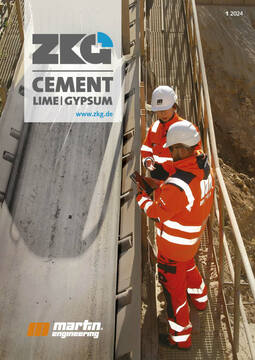Gypsum recycling in the focus of politics: Options for action identified for federal ministries
After two years of intensive work, the final report of the Recycling Raw Materials Dialogue Platform commissioned by the Federal Ministry for Economic Affairs and Energy from the German Raw Materials Agency DERA has been presented. The topic of gypsum recycling was analyzed in a separate sub-working group by a total of 43 experts from companies, science, authorities, associations and environmental organizations and the results were presented in detail in a separate profile. In addition, urgently needed options for political action were identified.
The most urgent option for action to improve gypsum recycling, which can be implemented as quickly as possible, is considered to be the legally secure definition of the end of waste status in conjunction with a legally secure asbestos limit value and a standardized analysis procedure for recycled gypsum at ordinance level. The addressees of this option for action are the Federal Ministry for Environmental Protection and Consumer Protection (BMUV) in conjunction with the Federal Ministry of Labor and Social Affairs (BMAS) and the EU Commission (notification).
“With broad participation from all relevant social groups, the aim from the outset was to achieve the highest pos-sible acceptance of the results,” says Holger Ortleb, head of the gypsum sub-working group and Managing Director of the German Gypsum Industry Association. The results will also be incorporated into the process of the National Circular Economy Strategy (NKWS), which is being overseen and developed by the Federal Ministry for the Environment, Nature Conservation, Nuclear Safety and Consumer Protection (BMUV). In order to leverage the potential of gypsum recycling in the best possible way, the options for action outlined above need to be implemented quickly by the German government.
Background
Two years of work on findings and formulations resulted in a final report by the Recycling Raw Materials Dialogue Platform. The aim was to further strengthen Germany’s supply of secondary raw materials and reduce dependence on raw material imports. At the same time, a reduction in greenhouse gas emissions for climate protection should also be achieved. In two working groups and eight sub-working groups, existing obstacles and barriers were identified by the 380 stakeholders involved. The standardized approach led to a very good comparability of the results:
Description of the status quo/existing situation analysis
Identification of barriers to recycling
Development of options for improved recycling
Assessment of feasibility and possible conflicting objectives in the
Implementation of the respective options for action
Outlook/next steps





